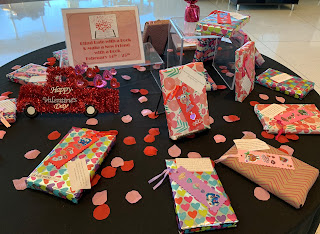How can researching historical fiction be so delightful? Let me count the reasons!
First of all, I’m curious. Always have been. Even in my youth, my questions may have seemed a bit “off” because I often searched beneath the surface. (Not too popular with my dad, a World War II vet working hard to make up for the time he had lost.) What business did this prying little snoop have delving into his motivations?
But this inquisitiveness has taken me places, and names exude history’s intrigue. For example, why would someone name a location Loyal Valley?
Before I could unearth the answer, this name had me hooked. Wow—a pioneer German immigrant chose Loyal Valley to reveal the area’s loyalty to the Union despite Texas officially joining the confederacy.
This act required courage. After all, tensions ran high during that period, and the Nueces Massacre took place quite close. But John Meusebach possessed courage in spades.
Secondly, I love stories.
Perhaps my searches involve human story as much as historical fact. I’m hungry for instances of courage, fortitude, and determination. Perhaps my background plays a role in this as well. Growing up in a tense household on an isolated family farm gave me a feel for tenacity and perseverance, because Mom displayed these qualities every day.
The capacity to “grin and bear it” ran deep in her. She’d experienced hole-in-the-shoe poverty in the Depression and watched two older brothers go off to fight in the war.
Obstacles notwithstanding, she trucked on. And beside her, her second child wondered, asked, and sometimes nagged. Always pondering, nose stuck in a book at every opportunity, this girl surfaced with even more questions.
Though others might scoff at the way her mind worked, foundations were being laid stone by stone, cemented into place. And sixty years later, I take joy in leaving no stone unturned in my research. Which brings me to our third reason: the joy of discovery.
Often while I’m searching, an intuition arises, so I must see if history bears out this possible scenario. In researching the Fall of Bataan, I thought, “Surely, with over 70,000 Allied captives and such mountainous terrain, some soldiers must have escaped.”
A whole lot of reading later, evidence came to light. Indeed, some officers had escaped to fight with Philippine guerillas in the heights. Such satisfaction ensued—my instincts rode close to the truth, and my hero might survive being a POW, might even make it back to the States.
Fourth, (and last for this writing) I like to learn. Isn’t that one reason we’re still here on earth, to learn and grow? A person cannot study history without learning—just today, a bias I’ve held for decades against a certain politician dissolved. How did I miss his part in aiding Jewish individuals to emigrate to the U.S. before and after World War II?
Historical research takes you where you allow it to. And the best part? The process amounts to pure fun!







